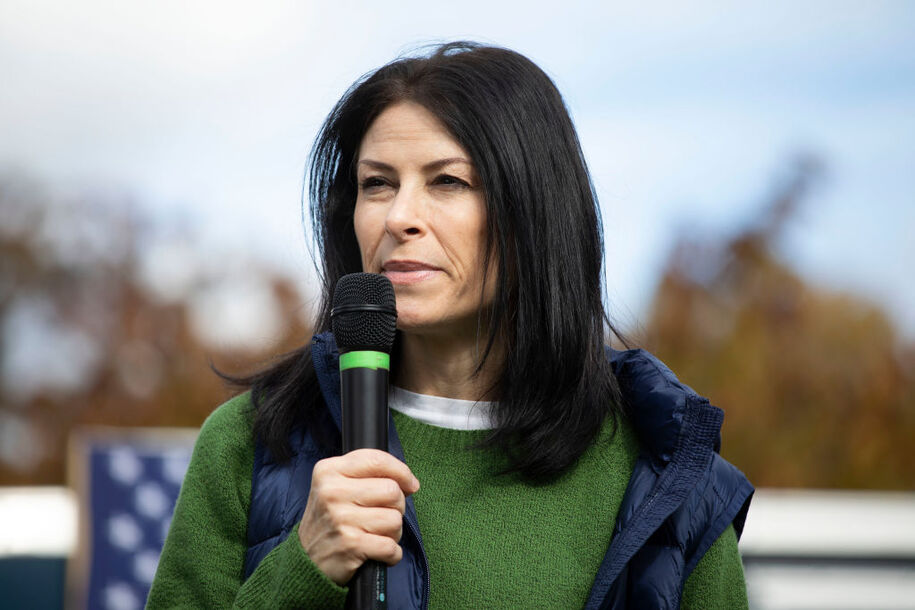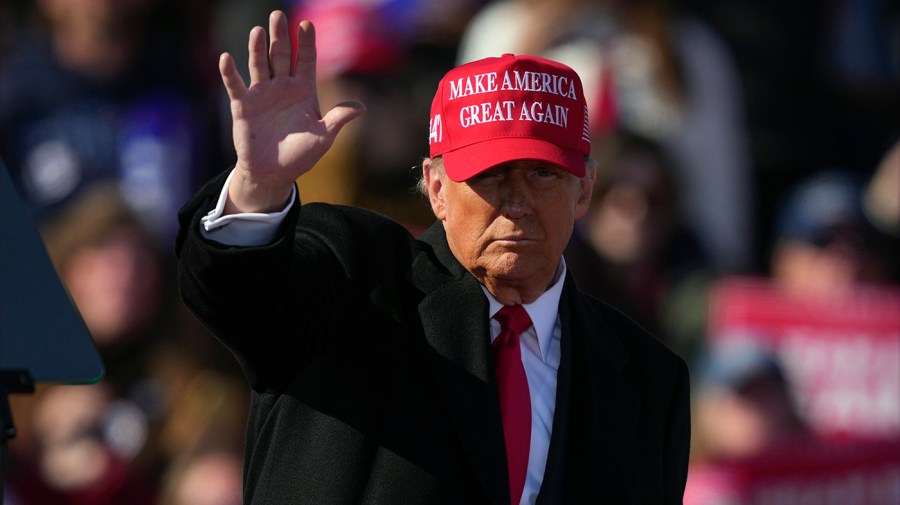Battleground state AG worries Trump won’t accept loss to Harris
Originally published by The 19th
Michigan Attorney General Dana Nessel worries that former President Donald Trump may not accept the results of the upcoming general election if he loses — in part because of whom he might lose to.
“My belief is this: If Donald Trump had such a difficult time conceding that he lost to another older White man, he is definitely not going to be OK in the event that he loses a presidential election to a younger Black woman,” Nessel told reporters Monday, referencing Vice President Kamala Harris’ expected place at the top of the Democratic ticket. “And I am very concerned about what plans he and his allies might have to be disruptive to the 2024 election.”
Nessel is the top prosecutor in a battleground state that was at the epicenter of efforts by Trump and some Republicans to overturn the 2020 presidential election. She is now among a handful of prosecutors around the country who are criminally charging so-called fake electors — people who claimed falsely that they were electors for Trump in the 2020 election despite his loss.
Trump continues to sow doubt about America’s elections in his third bid for the presidency. During the Republican Party’s convention in Wisconsin, he claimed falsely that cheating occurred in the 2020 elections. At a recent campaign rally, he speculated without evidence that cheating will occur in the upcoming election.
Harris’ historic bid — she would be the first woman president, and the first Black and South Asian-American woman president, if elected — has already made her the target of racist and sexist online attacks. Trump, who appeared to be courting the electoral power of men in recent messaging, has a history of personal attacks against women of color who hold power. That includes New York Attorney General Letitia James, who has investigated Trump for alleged business fraud, and Fani Willis, a district attorney in Georgia who is prosecuting alleged election interference involving Trump.
Biden announced July 21 that he will not seek reelection for president. Harris has tentatively received enough support from delegates to become her party’s nominee, and recent polling shows a tightening race.
Nessel, a Democrat, added that she isn’t making predictions about the outcome of the race.
“It is my job as attorney general to defend the will of Michigan voters — whatever they might be. And so if Donald Trump receives more votes than our expected nominee, Kamala Harris … if that happens and he wins the election, then I’m going to be just as determined, just as tenacious to defend his win, because that’s my job,” she said.
Nessel made her remarks about Trump and Harris at an elections-related journalism training event hosted by the National Press Foundation. A reporter asked the attorney general about one of her biggest concerns with 100 days to go before the November 5 election. Nessel noted Trump has indicated that he won’t accept the results of the upcoming election.
“He’s already said if he doesn’t win, it’s because it was stolen. And I mean, that is so frightening — ‘Either I win, or it’s not fair,’” she said.
During a presidential debate in late June, Trump said he would accept the results of the election if it is a “fair and legal and good election.” Separately, Trump told a group of Christian voters last week that they “won’t have to vote anymore” if he’s elected in November.
“Christians, get out and vote, just this time. You won’t have to do it anymore. Four more years, you know what? It’ll be fixed, it’ll be fine. You won’t have to vote anymore, my beautiful Christians,” he said at Turning Point Action’s “Believers Summit” in Florida.
The comments have spurred a backlash from some Democrats who believe Trump was implying he would not allow another U.S. presidential election if he won. Trump told Fox News personality Laura Ingraham in an interview that aired Monday that he had not heard the criticism. When Ingraham asked the former president to clarify his remarks, he didn’t address it directly and instead repeatedly claimed that Christians do not turn out to vote in large numbers.
Since the start of Trump’s first presidential bid nearly a decade ago, he has questioned the validity of America’s elections. In 2016, he claimed without proof that millions of undocumented immigrants voted in the election. In 2020, he sought to cast doubt about his loss to Biden and tried to overturn election results in Georgia and through the support of fake electors.
Nessel said she and other state officials are preparing for the elections through regular meetings with local clerks, officials and law enforcement. Still, she said she’s more concerned about the 2024 election than four years ago, in part because some people have lost faith and confidence in the integrity of elections — despite multiple audits and reviews of Michigan’s election results. She credited the legislature with passing new laws aimed at ensuring fake electors cannot repeat what they did in 2020, and making sure election certification cannot be held up for an invalid reason. State lawmakers have also expanded voting access following a ballot initiative that passed in 2022.
“This is the ultimate swing state, and it’s really a microcosm of America, and our public officials have been bolstering our state’s defenses and trying to close loopholes in the law as they’re identified,” she said.
Sign up for our newsletter to stay up to date on what's happening with the America Project and our Connect the Dots Campaign!




Post Comment